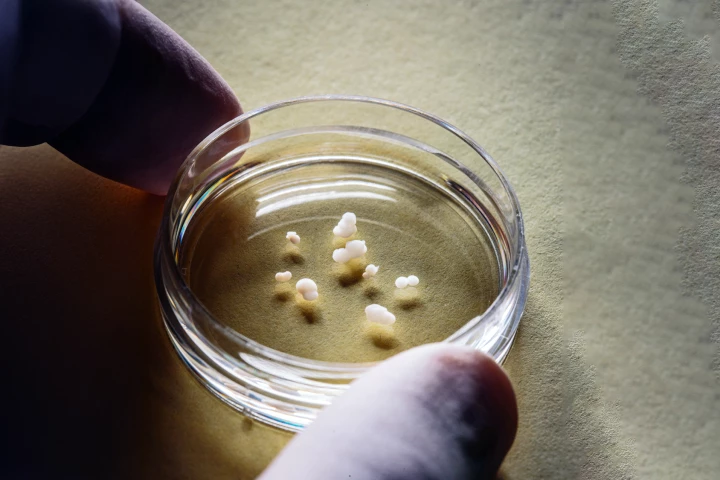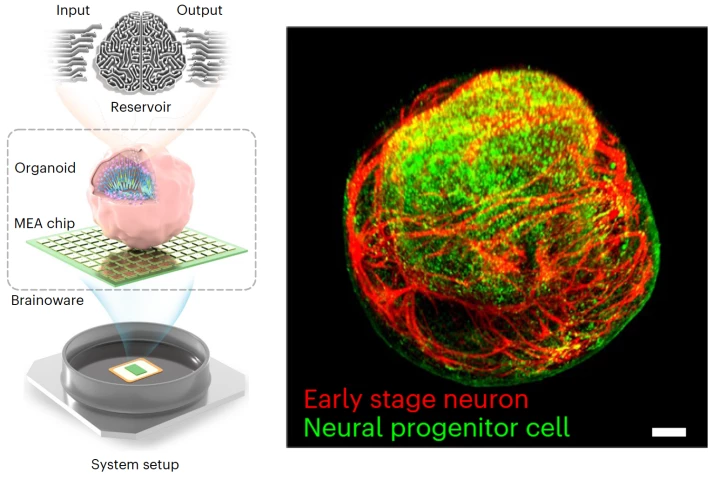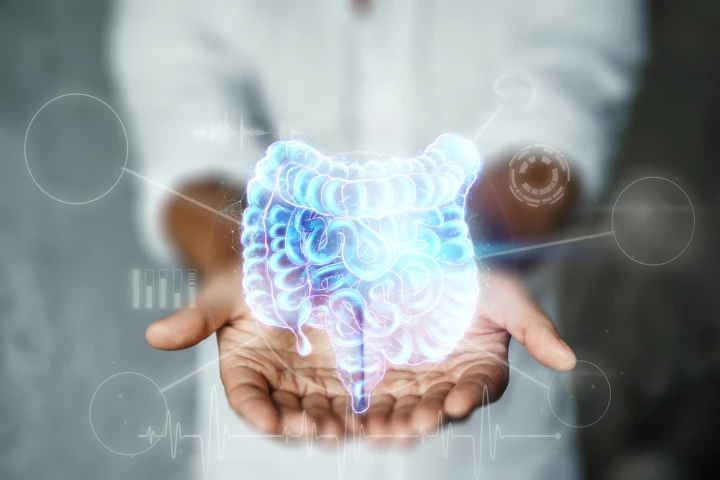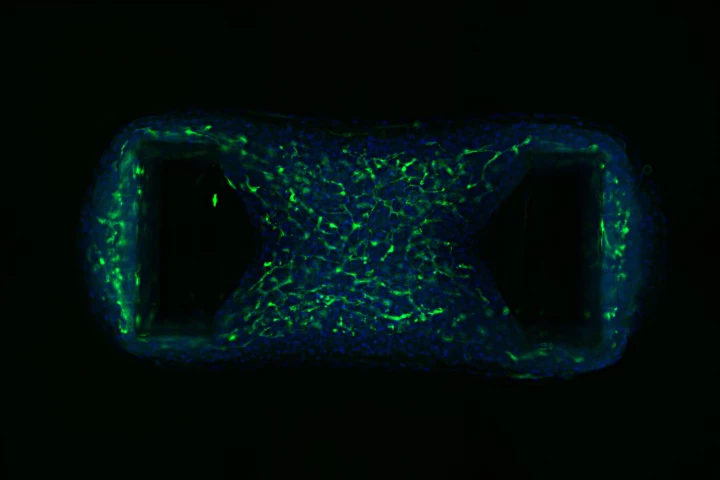organoid
-
Tiny 3D organs connected themselves in a lab dish, forming a replica of the human pain pathway, in a new study. The discovery allows scientists to better understand chronic pain and offers an animal-free method of testing pain treatments.
-
Current AI training methods burn colossal amounts of energy to learn, but the human brain sips just 20 W. Swiss startup FinalSpark is now selling access to cyborg biocomputers, running up to four living human brain organoids wired into silicon chips.
-
In good news for future animation figureheads, there might be a new way to revive frozen brains without damaging them. Scientists in China have developed a new chemical concoction that lets brain tissue function again after being frozen.
-
Lab-grown testicle organoids that closely resemble the real thing provide a promising model for research that may help our understanding of testicular development and translate into therapeutic applications for male infertility.
-
Researchers created model tumors using the tissues of patients with bowel cancer and used them to predict how the disease will respond to specific drugs with 83% accuracy. The pioneering approach could ensure patients get the most effective treatment.
-
Scientists have grown a tiny brain-like organoid out of human stem cells, hooked it up to a computer, and demonstrated its potential as a kind of organic machine learning chip, showing it can quickly pick up speech recognition and math predictions.
-
Researchers have found that SARS-CoV-19 infection can cause ‘zombie’ cells to accumulate, contributing to the brain fog associated with long COVID, and have identified drugs that can reverse this virus-related premature aging.
-
Researchers have improved upon existing organoids, creating a miniature 3D colon complete with immune cells that could lead to the development of personalized treatments for colon-related diseases such as inflammatory bowel disease and cancer.
-
We can’t regenerate damaged tooth enamel, but scientists have now grown mini teeth in the lab that secrete enamel-producing proteins. This could be the first step towards “living fillings” that patch up cavities, or even lab-grown replacement teeth.
-
Last year, Monash University scientists created the "DishBrain" – a semi-biological computer chip with some 800,000 human and mouse brain cells lab-grown into its electrodes. Demonstrating something like sentience, it learned to play Pong within five minutes.
-
Australian researchers have achieved two firsts that will assist in the battle against heart disease: they created a tiny beating heart with its own vascular system and uncovered how the vascular system affects inflammation-driven heart damage.
-
Researchers have built a lung in a lab that more accurately emulates the human lung than traditional models, opening the door to the fast-tracking of the discovery and development of drugs and a reduction in our reliance on animals for testing.
Load More











